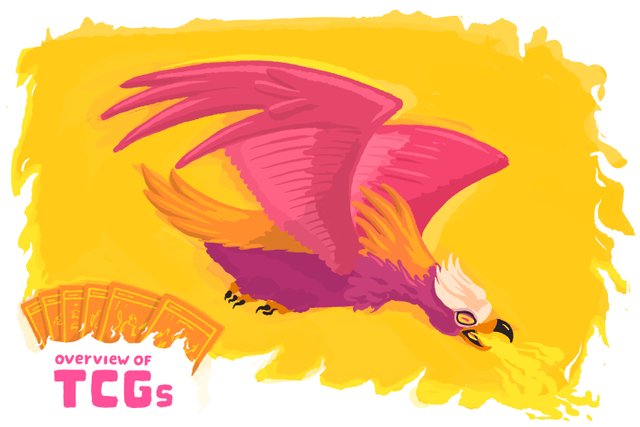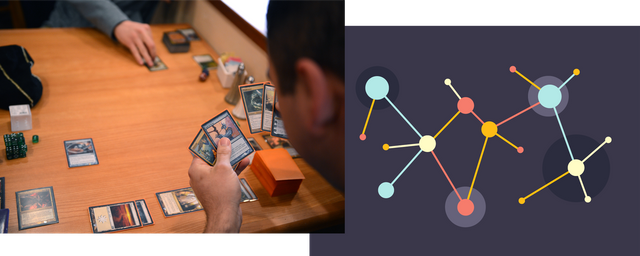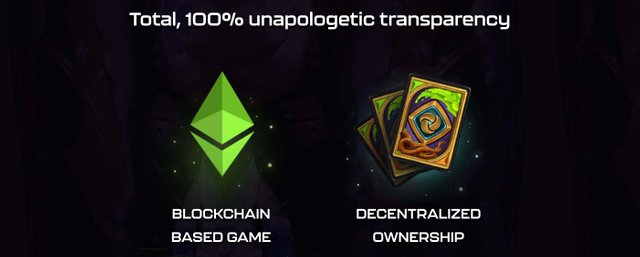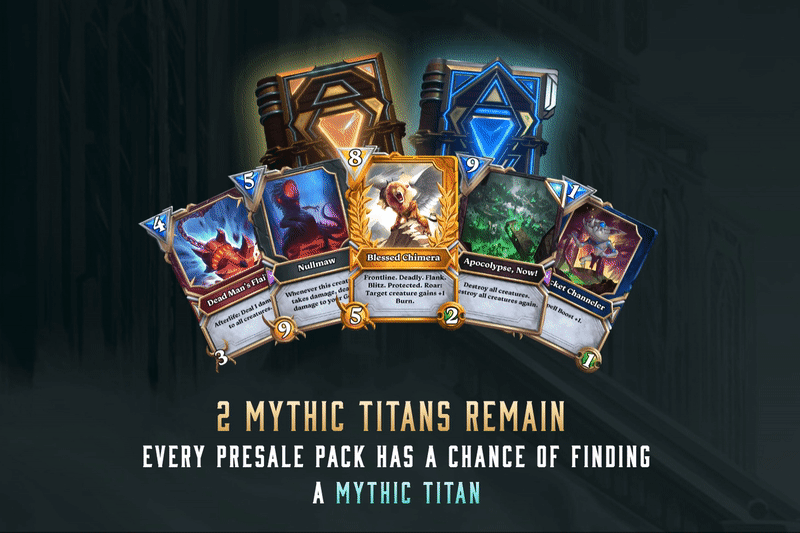Card Slingers and Crypto Winners: The Impact of Blockchain on Trading Card Games

Distributing the Perfect Hand
For the past year, crypto collectibles have been at the frontlines of make blockchain appealing for the mass public. From kitty variants to racing dragons, cryptographically linked digital animals and goods truly showcase the new value proposition of provably scarce objects and are shaking up how we’ve treated past collectibles like Beanie Babies. And now, we’re seeing a real shakeup of the Trading Card Game (TCG) format by blockchain.

This domain has been historically made popular by products like Magic: The Gathering (MtG), followed by YuGiOh and Pokemon cards with their competitive and collectible appeals. With millions of players worldwide and enormous communities of collectors and speculators, the legacy culture around such games has held strong for decades. And on the online front, we have the indomitable Hearthstone. By boiling down the mechanics approachability of the aforementioned TCGs, Blizzard Entertainment has raised their product to the level of other major E-Sport titles.
Blockchain initiatives are beginning to throw their hat in the ring as well. We’re seeing unprecedented presales and fundraisers with the excitement games like Steem Monsters, Gods Unchained, and Loom’s Zombie Battleground are creating in the cryptosphere. Today, we’re looking at the ways these titles are truly re-empowering TCG culture with decentralized protocols and what that really means for dedicated players.

Provable Ownership
All of us players and collectors have had the worst happen to us at one time or another - losing an essential and valuable card, or even more catastrophic, an entire deck. Without burdensome insurance and registries, collectibles don’t have the same protection layer of verifiable ownership that cars and houses have. Once it’s gone, it’s gone, and there is no way of proving a certain card or collection of cards is yours.
Provenance is the most immediate use case for blockchain, meaning that if you purchase a set of digital or physical blockchain-backed cards, an entire unhackable ledger is protecting your ownership. Those buzzwords like “immutability” you hear so often in the crypto sector are an impenetrable defense to your beloved collection.

An exciting subcomponent of this is the clear provenance of any asset. Maybe you end up trading for some cards champions like Brian Kibler and Louis Scott Vargas used to win their latest Pro Tour. Having a clear lineage of who owned what before you adds an exciting new element to collecting and playing.
Indefinite Lifetime with or without a Core Company
What does one need to do to purchase Hearthstone cards? Go through Blizzard. What if someone wants to organize a sanctioned tournament? Go through Blizzard. Attend a dedicated E-Sporting event? Create a new gaming format? Sell fan merch? You guessed it - go through Blizzard.
This is all well and good for now, but what happens when Blizzard inevitably shifts their focus to another product? E-Sports don’t require the same type of infrastructure as physical sports, thus all aspects of the game, its marketing, and its broadcast can be controlled by one organization. With the way franchises are structured now, consumers have little to no control or say how their favorite games play out.
This is the absolute inverse of what a decentralized network like blockchain provides. With this new model, you are both a consumer and a stakeholder, having the capacity to create new game types, share new forms of content, and mobilize whatever variety of engagement you’d like. The lifetime of a game is no longer dependent on the corporate whims of a single authority.
”All the information is publicly available, so anyone who wants has all the information we have and can build their own versions of the game that use the same cards. If people like that version better, they can use the product in a way they want.” - @yabapmatt of Steem MonstersFinally, this solidifies the ‘trophy’ quality to digital games and goods that has haunted hardcore fans. The custom weapons from CS:GO, costume skins of Fortnite, and the ultra-rare accessories of World of Warcraft are all prized collector’s items with both sentimental and financial value for their players and again, once these games eventually shut down, that value is lost. With blockchain games, these items are linked to the eternal ledger and can always be reclaimed by their owners, even when the core developers have long moved on.
Provable Scarcity
With provable ownership comes provable scarcity. Since we’re able to track every transaction of every asset, we know exactly how many of any item exist and are actively being used. Despite the infamy of the Alpha and Beta Black Lotus in MtG, there is actually no way of precisely knowing how many cards are in existence, making trading price extremely speculative and value very tentative.
Blockchain is thus an ultimate anti-counterfeit measure. Fake MtG cards are the greatest threat to collectors, investors, and all players that depend on the authenticity and potential value of the physical goods. If we know that there are only X number of Naga Warriors in Steem Monsters and who exactly owns them, we can protect against false sellers and false copies.
Blockchain is already proving to be an exciting frontier for card-slingers and Esport lovers worldwide. The future for decentralized gaming is surely user-driven, focused on consumer protection, and open-source, all qualities the trading card game industry has sorely needed in the internet era.
We would also like to extend our thanks to the team behind Steem Monsters and the Loom Network for sharing insight into their products.

Posted from my blog with SteemPress : https://thecreativecrypto.com/card-slingers-and-crypto-winners-the-impact-of-blockchain-on-trading-card-games-2/
This is exactly why I liked the idea of a blockchain Trading Card Game. You get all of the benefits of a owning the cards like in real life without the digital drawback of all your cards being stuck on a singleton account. Blockchain games are allowing us to start a hobby and when its time to move on you can resell the digital assets back out to other players keeping the game going as well as helping fund your next hobby or adventure in life. The thought allowing any other developers use the digital assets that are on the blockchain in their own games makes each asset that much more valuable without the problem of the collectible getting damaged like a real life collectable.
My favo card is dark prince. I like his splash damage and shield. He is good in any deck like bait,golem and giant. I love it in bait and it a really good tank also for the barrel. I also like is shield animation. Your the best!!!!